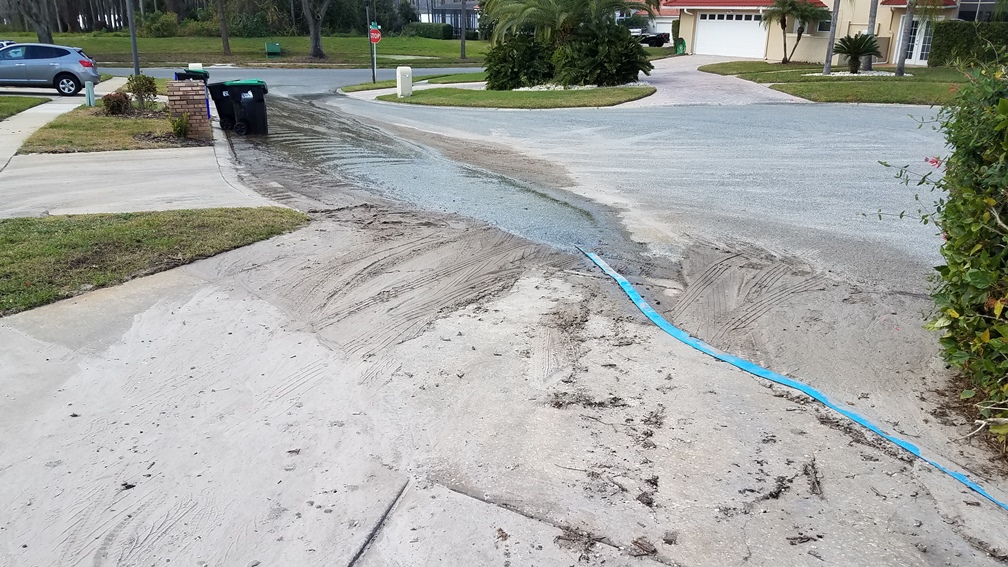
Don’t Pollute: How to Properly Dispose of Pool and Spa Wastewater
Do you know how to properly dispose of pool and spa wastewater? If you guessed down a storm drain, you are mistaken! Pool and spa wastewater that flows down storm drains ends up in local waterways, affecting water quality, wildlife and even our health.
Why is stormwater pollution so hazardous?
Anything dumped or dropped on the ground or in the gutter can wind up in the nearest body of water. Stormwater pollution results from materials and chemicals (like chlorine from pools) washed into storm drains from streets, gutters, neighborhoods, industrial sites, parking lots and construction sites. This is significant because, unlike the water that goes down a sink or toilet in your home, stormwater is untreated and flows directly to lakes, rivers or even the ocean.
When stormwater is contaminated from pool or spa discharge, it can result in lake advisories being issued recommending residents and their pets stay out of the water due to unhealthy water conditions. Polluted stormwater also carries disease-causing bacteria and viruses that can harm wildlife and humans, which can lead to earaches, sinus problems, diarrhea, fever and rashes.
How do I properly dispose of pool and spa wastewater?
To ensure your pool water is free of contaminants, follow these best management practices (BMP) prior to discharging chemically-treated water:
- STOP adding chlorine or salt several days before you plan to discharge pool water onto a grassy area.
- Use a test kit to check that chlorine levels are 0.01 mg/L or less. If chlorine level is not zero, wait at least 48 hours and test again. You may use a dechlorinating additive to neutralize chlorine.
- Test pool water to be sure pH of discharge water is between 6.5 and 8.0.
- Keep discharge water on your property by pumping it slowly onto your yard. Keep discharges out of neighbors’ yards and the street.
- Rinse filters over yards and not over driveways or paved areas.
- Dispose of all filter media such as diatomaceous earth in the trash.
If a professional pool company drains your pool and uses muriatic acid to pressure wash its interior, they will need to neutralize the wastewater with soda ash or similar product prior to discharging the wastewater. In order to verify the water is safe to discharge, the crew may need to containerize the pool wastewater and follow the BMP’s provided above.
Stormwater systems were originally intended to route rainwater quickly off the streets during a heavy storm. Unfortunately, these systems can carry pollutants such as pesticides, bacteria and chemicals through city streets and straight to water sources.
Orange County Water Quality Ordinance
In order to maintain healthy and safe water quality, Orange County has a Water Quality Ordinance, which reads as follows:
Orange County Code, Chapter 15, Article IV, Orange County Water Quality Management Rules; adoption of state rules by reference. Section 15-115. Prohibitions.
(a) It shall be unlawful for any person to cause, permit, suffer or allow any illicit discharge or illicit connection into the county’s Municipal Separate Storm Sewer (MS4) or into waters of the county. The MS4 transports untreated runoff into local water bodies.
(b) It shall be unlawful for any person to cause, permit, suffer or allow any discharge onto the ground surface in such quantity and of such characteristics as may cause or tend to cause water pollution.
Learn more about Orange County Government’s Environmental Protection Division and how you can help maintain healthy water quality and protect our lakes, rivers, streams and wetlands. Contact P2@ocfl.net for more information.
Photo cutline: Pool wastewater flowing down the storm drain and directly into our waterways.
